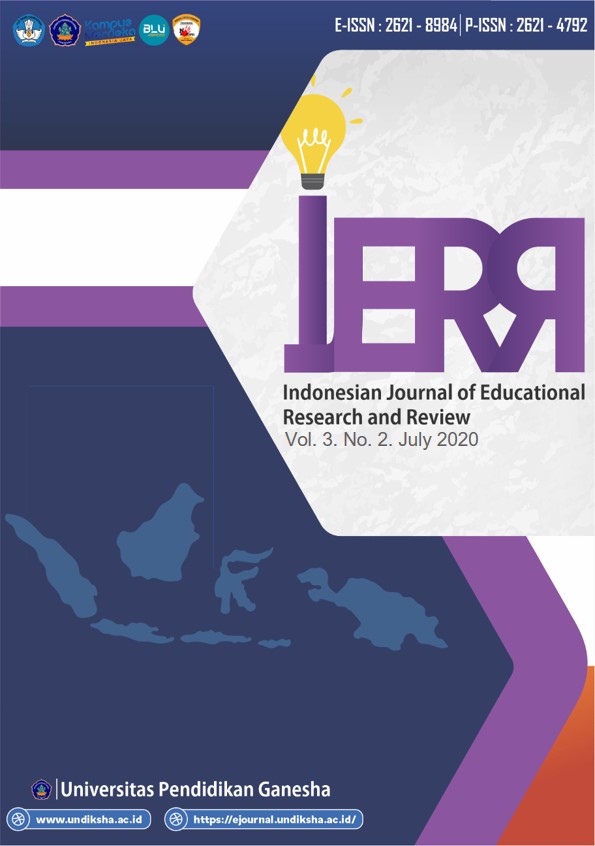An Analysis Of Jargons Used By The Housekeeping Department At The Lovina Bali Hotel
DOI:
https://doi.org/10.23887/ijerr.v3i2.26537Keywords:
jargon, housekeeping, and The Lovina Bali Hotel.Abstract
This study aimed to 1) identify the jargons used, 2) analyze the word formations process, 3) explain the meaning of each jargons used by the Housekeeping Department at The Lovina Bali Hotel. Jargons is analyzed respectively based on the theories of Allan and Burriged (2006), Yule's theory (2006) and Hornby's theory (1995). This study was descriptive qualitative research. The subjects of this study were the 3 Housekeeping staff. The instruments that are used in this study were checklist, tape recorder, interview guide. This study found 104 jargons and showed that there are 8 types of word formation appears in this study, in the terms of phrases (46 or 4.23%), abbreviations (37 or 35.57%), nouns (4 or 3.84%), verbs (2 or 1.92%), borrowing (2 or 1.92%), backformations (2 or 1.92%), adjectives (1 or 0.96%), derivation (1 or 0.96%), and clippings (1 or 0.96).
References
Allan, K. a. (2006). Forbidden Words: Taboo and the Censoring of Language. Cambridge: Cambridge University Press.
Baker, C. (1989). English Syntax. Cambridge: The MIT Press.
Booij, G. (2007). The grammar of words: An introduction to linguistic morphology, 2nd edition (Oxford Textbooks in Linguistics). Oxford: Oxford University Press.
Budasi, G. & Kurniawati, L, K. (2019). English for Hotel. Singaraja: Mahima Institute Indonesia.
Guzman, O. a. (1996). Contempory Linguistics: An Introduction. United Kingdom: Essex.
Hornby, A. (1995). Oxford Advanced Learners Dictionary. New York: Oxford University Press.
Hutchinson, T. &. (1987). English for Specific Purposes: A learning-centered approach. Cambridge: Cambridge University Press.
Pateda, P. D. (2001). Semantik Leksikal. Jakarta: Rineka Cipta.
Rumekso, S. (2002). Housekeeping Hotel Floor Section. Yogyakarta: C. V ANDI OFFSET.
Venhaar, J. (1996). Pengantar Linguistik. Yogyakarta: Gajah Mada University Press.
Yule, G. (1996). Pragmatics. Oxford: Oxford University Press. 2006. The Study of Language Third Edition. Cambridge: Cambridge University Press.
Downloads
Published
How to Cite
Issue
Section
License
Authors who publish with the Indonesian Journal of Educational Research and Review (IJERR) agree to the following terms:
- Authors retain copyright and grant the journal the right of first publication with the work simultaneously licensed under a Creative Commons Attribution-ShareAlike 4.0 International License. that allows others to share the work with an acknowledgment of the work's authorship and initial publication in this journal.
- Authors are able to enter into separate, additional contractual arrangements for the non-exclusive distribution of the journal's published version of the work (e.g., post it to an institutional repository or publish it in a book), with an acknowledgment of its initial publication in this journal.
- Authors are permitted and encouraged to post their work online (e.g., in institutional repositories or on their website) prior to and during the submission process, as it can lead to productive exchanges, as well as earlier and greater citation of published work. (See The Effect of Open Access)









